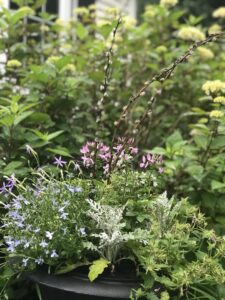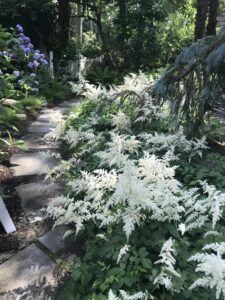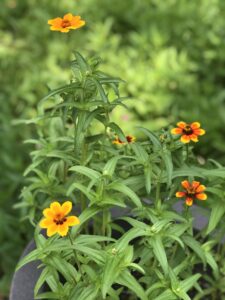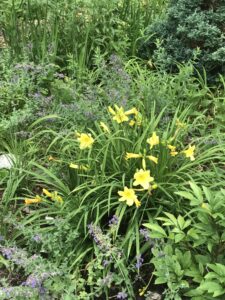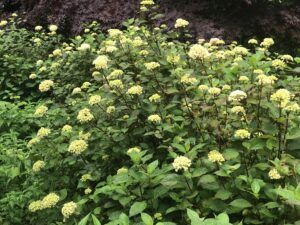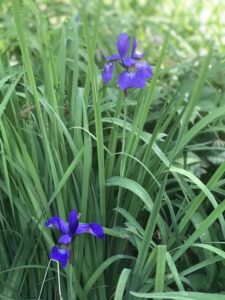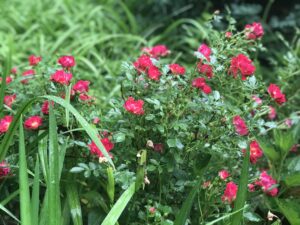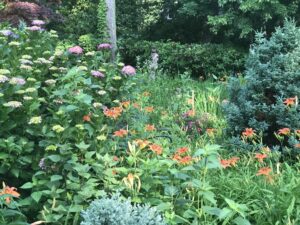You can’t become happy; you can only be happy.
We often take the joy out of the experience by presupposing some magic pill to arrive, marking the journey as complete.
In truth, we are always in motion, and it’s a fool’s errand to expect to reach a non-existent permanent happy state.
It’s the prime reason some wealthy people never seem content. Thinking the next new gadget is the answer compounds the problem.
What’s the answer to our perpetual state of restlessness?
Here’s an option – try gardening.
There are copious reasons to undertake this pursuit.
Besides making the world more aesthetic and providing shelter and food for various living creatures, Gardening is an antidote for troubled minds and bodies.
Planting, pruning, pulling weeds, lugging rocks, and mulching are nature’s version of CrossFit.
Gardeners move more than their counterparts.
The New York Times provided more details about the benefits of Gardening for physical health.
One study of older adults found that, compared with those who don’t exercise, people who gardened as one of their main physical activities had lower rates of heart attack, stroke, diabetes, high cholesterol, and high blood pressure.
Working with plants bestows gardeners with meaning and purpose. Humans need a cause bigger than themselves; look no further than the soil. Creating a living ecosystem fills the gap.
Studies confirm this theory.
Working in a garden lowers people’s scores on anxiety and depression measures; other research has found increased confidence and self-esteem among gardeners. In one small study, spending 30 minutes gardening lowered levels of the stress hormone cortisol.
Touching soil triggers the release of Serotonin. Getting dirt under your nails improves gut health. The best pills for health aren’t found in plastic bottles.
Gardening offers a solution in an age where loneliness is a chronic disease.
Gardners share plants and have their own language, fostering community. A beautiful garden becomes the focal point of a home and often attracts admiring neighbors and others, providing ample opportunities for more conversations and connections.
Most importantly, gardening forces you to focus on what’s important in life – The Journey.
Gardens vary by the minute. The greatest joy is watching the transformation after a summer rain when the plants inflate and change color before your eyes.
Not that it’s all fun and games.
It’s constant warfare between succulent plants, ravenous insects, and other critters.
The idea of permanence is laughable when a marauding deer can ravage a meticulously cultivated flower bed in the blink of an eye.
Other than being forced to watch an episode of Bridgerton, there are few things I despise more than observing the slimy trail of slugs and the skeletal remains of their victims.
Pivoting back to our main point of seeking permanence in an impermanent world, gardening-like life is a work in progress.
Focusing on this unassailable fact is the secret to avoiding a mid-life crisis or a depressing retirement.
It turns out that trying to achieve mastery at something, knowing you’ll never reach it, is good for your body and soul.
The Wall Street Journal elaborates on this revelation.
Here’s the thing about trying to achieve mastery later in life: You may not reach your destination. And I’ve come to believe that’s a good thing. Unlike the enjoyable activities we pursue that have definitive endings—taking a walk, eating a great meal, going on vacation—training to get good at something hard is ongoing and incomplete. And that’s the beauty of it: There’s always something to look forward to.
There’s always tomorrow for Gardners. We’re an optimistic lot. Plagues, Droughts, and Barbarian Insects at the Gate never hinder the will to forge ahead despite the inevitable setbacks.
Use your money to fuel your passions.
Remember – You’ll never reach that coveted final destination of perfection and permanence.
That’s the point.
Here are some pics of my work in progress. Nothing makes me happier because there’s no final grade.
